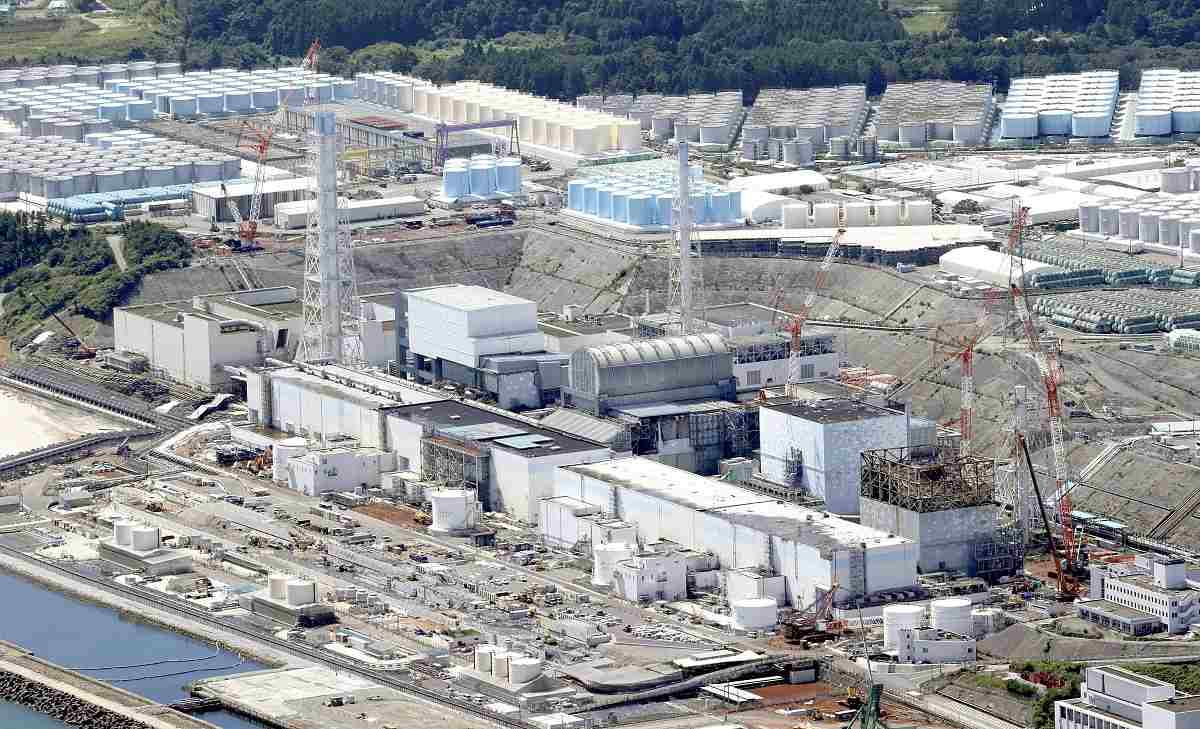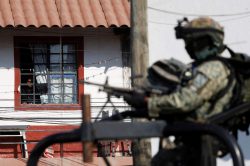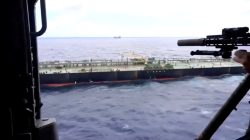
The Fukushima No. 1 nuclear power plant in Fukushima
10:44 JST, January 19, 2023
SYDNEY, Jan 18 (Reuters) – Pacific island nations are urging Japan to delay the release of water from the destroyed Fukushima nuclear power plant over fears fisheries will be contaminated, the Pacific Island Forum (PIF) said on Wednesday.
The Japanese government said last week that water from the destroyed Fukushima nuclear power plant could be released into the sea “around this spring or summer,” raising concerns from island nations still grappling with the legacy of nuclear testing decades ago.
Japan had approved the future release of more than 1 million tonnes of water from the site into the ocean after treatment in April 2021.
The PIF, a regional bloc of 17 island nations, argues the release of the water could have a major impact on fishing grounds that island economies rely on, and where up to half of the world’s tuna is sourced.
“Our region is steadfast that there be no discharge until all parties verify it is safe,” PIF Secretary General Henry Puna said on Wednesday at a livestreamed public meeting in Suva, Fiji.
“We must prevent action that will lead or mislead us towards another major nuclear contamination disaster at the hands of others,” he added, saying Pacific islanders continued to endure the long-term impacts of the nuclear testing legacy on a daily basis.
The United States conducted nuclear testing in the Pacific islands in the 1940s and 1950s and the Marshall Islands continues to campaign for more compensation from Washington over lasting health and environmental effects.
France conducted atomic testing between 1966 and 1996 at Mururoa Atoll in French Polynesia in the southern Pacific Ocean.
Ken Buesseler, a scientist with the Woods Hole Oceanographic Institution, told the forum on Wednesday that a PIF scientific expert panel was urging Japan to reconsider the waste release because it was not supported by data and more information was needed.
Radioactivity moves across the ocean with currents and tides and risks contaminating fish, he said.
A spokesperson for the U.S. State Department said Japan had examined several options to address “a unique and challenging situation.””Japan has weighed the options and effects, has been transparent about its decision, and appears to have adopted an approach in accordance with globally accepted nuclear safety standards,” the spokesperson said.
“We look forward to the Government of Japan’s continued coordination with the IAEA as it monitors the effectiveness of this approach,” the official added, referring to the International Atomic Energy Agency.
Japan’s foreign ministry has previously said that regulators deemed it safe to release the water, which would be filtered to remove most isotopes but would still contain traces of tritium, an isotope of hydrogen hard to separate from water.
Top Articles in News Services
-

Survey Shows False Election Info Perceived as True
-

Hong Kong Ex-Publisher Jimmy Lai’s Sentence Raises International Outcry as China Defends It
-

Japan’s Nikkei Stock Average Touches 58,000 as Yen, Jgbs Rally on Election Fallout (UPDATE 1)
-

Japan’s Nikkei Stock Average Falls as US-Iran Tensions Unsettle Investors (UPDATE 1)
-

Trump Names Former Federal Reserve Governor Warsh as the Next Fed Chair, Replacing Powell
JN ACCESS RANKING
-

Producer Behind Pop Group XG Arrested for Cocaine Possession
-

Japan PM Takaichi’s Cabinet Resigns en Masse
-

Man Infected with Measles Reportedly Dined at Restaurant in Tokyo Station
-

Israeli Ambassador to Japan Speaks about Japan’s Role in the Reconstruction of Gaza
-

Videos Plagiarized, Reposted with False Subtitles Claiming ‘Ryukyu Belongs to China’; Anti-China False Information Also Posted in Japan
























